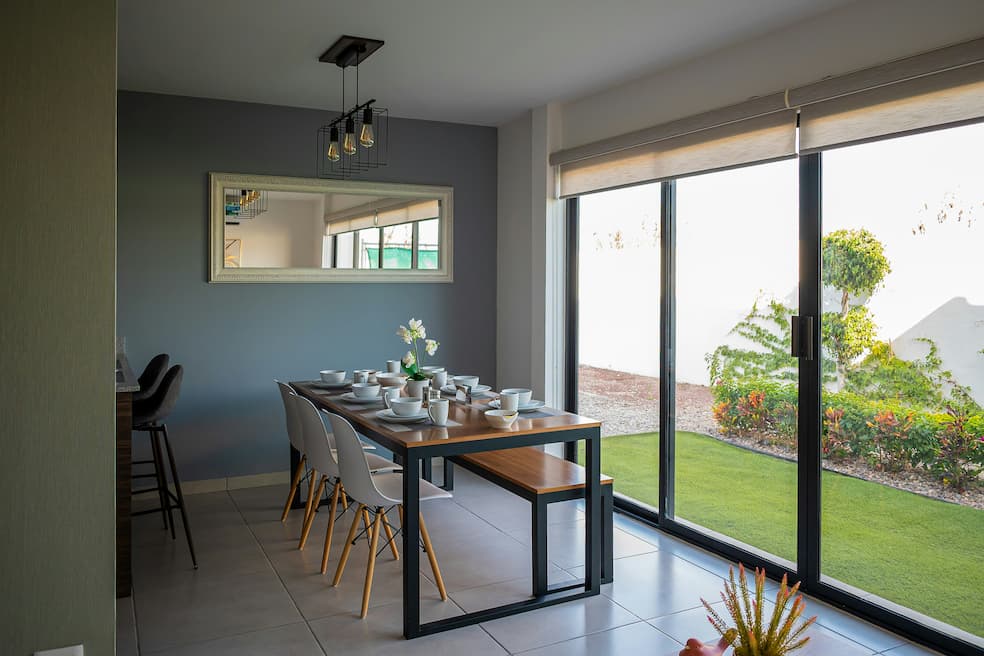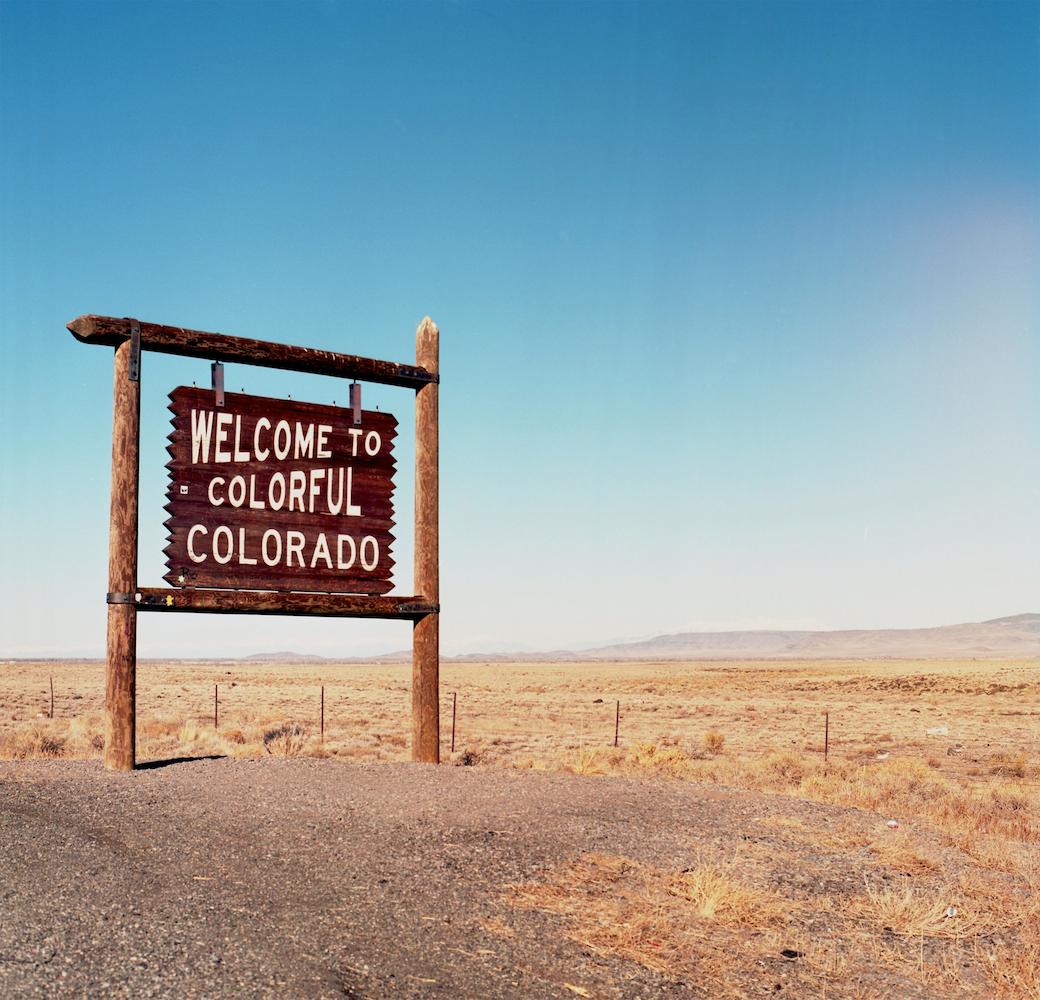In recent years, the State of Colorado has been one of the most attractive and most profitable locations to invest in Airbnb across the US. The hot springs, the Rocky Mountain National Park, the endless natural attractions, the beautiful landscapes, and the art and music scene are just some factors that have contributed to this status.
However, the expansive growth of the Colorado Airbnb industry led to an inevitable housing crisis. Local legislators had to respond to this challenge and started adopting various regulations on vacation rentals across the state.
While there are no state-wide Colorado short-term rental laws, the rules at the county and city level are frequently some of the strictest in the US.
If you're interested in turning your property into a short-term rental, but you're not sure if it's legal under Airbnb regulations, Awning can help. As a nationwide property management company, we are well-versed in the laws and regulations surrounding short-term rentals. Contact an Awning agent today and let us help you determine if your property qualifies. Call or text 415-941-5206
Colorado's Definition of a Short Term Rental
The State of Colorado does not have an official unified definition of a short-term rental property. According to a bill introduced in 2020 but still not signed as of 2025, a Colorado short-term rental unit would be a building or a portion of a building that is designed as a place of residency but that is leased or made available for lease for short-term stays and is occupied by the owner for less than 30 days in a year. A short-term stay, meanwhile, would be classified as overnight lodging for less than 30 consecutive days for a monetary payment.
Under this proposed definition, they exclude short-term rentals from the residential improvements category.
Most Colorado cities and counties use the 30-day threshold to define short-term rentals. Any rental for less than 30 consecutive days typically requires compliance with local STR regulations.
Starting a Short-Term Rental Business in Colorado
To start a vacation rental business in Colorado, property owners do not need to apply for any state-level permits or licenses. A general requirement not pertinent to short-term rentals only is to register your business with the Colorado Secretary of State. You can do that online. The process requires a small fee, in the $20 to $50 range.
Next, you need to get a federal employer identification number (EIN) if you want to form an LLC or corporation. However, you don't need this if you form a sole proprietorship. You can apply online through the IRS website.
Colorado has a sales tax license that is valid for two years. You need to apply through the Colorado Department of Revenue. According to the Colorado short-term rental laws, sales tax has to be paid both at the state and at the local level.
Short-Term Rental Licensing Requirement in Colorado
The State of Colorado does not impose any state-wide vacation rental licensing or permitting requirements. However, the state authorities realized the need to control the short-term rental industry in order to ease the housing and economic crisis in the top tourist locations across the state.
As a result, in March 2020 the Colorado General Assembly signed an act which allows a board of county commissioners to license and regulate owners and owner agents who rent or advertise lodging units for short-term stays. The board can fix relevant fees, terms, and issue rules for how hosts get and maintain licenses.
This makes the Colorado Airbnb regulations similar to the Texas and California short-term rental laws. All these states have opted for minimal state-level rules, leaving jurisdiction in the hands of local authorities in order to accommodate the specific situation within their county or city.
In 2025, House Bill 23-1287 clarified that county authority applies to lodging units available for rentals less than 30 days and excludes hotel units. This legislation goes into effect August 6, 2025.
Recent State-Level Legislative Attempts
The Colorado legislature has made several attempts to increase taxes on short-term rentals at the state level. In April 2024, Senate Bill 33, which would have quadrupled property taxes on many short-term rentals, failed in committee. The bill would have taxed short-term rental properties at the commercial rate if they were rented for more than 90 days per year.
House Bill 1299, a gentler alternative that would impose commercial property tax rates only on properties owned by persons or businesses with at least two other homes, was also introduced but its status remains unclear following the failure of Senate Bill 33.
These failed attempts show the ongoing tension between generating tax revenue and supporting the tourism industry that relies heavily on short-term rentals.
License Renewals for Short Term Rentals in Colorado
Since Colorado does not require short-term rental licenses and permits at the state level, there is no need to renew such documents with the state.
Colorado Airbnb hosts need to keep in mind that Colorado sales tax licenses are valid for two years. They need to be renewed afterwards in order to continue paying sales tax and keep your vacation rental business legal.
Local jurisdictions have their own renewal requirements. Most cities require annual renewal of STR permits, with fees ranging from $100 to $350 depending on the location.
Required Documents for Colorado Short Term Rentals
There are no specific documents that Colorado short-term rental owners need to present to the state. The only documents needed are those related to registering a business, getting an EIN if applicable, and getting a sales tax license. The documentation varies though, depending on the type of business, so Airbnb hosts need to check what applies to their particular situation.
Counties and cities have enacted their own short-term rental laws which ask for unique documents in order to get a license or a permit. Common requirements across most jurisdictions include:
- Proof of ownership or written authorization from the property owner
- Government-issued ID (typically Colorado driver's license)
- Proof of liability insurance
- Local contact information available 24/7
- Safety equipment certifications (smoke detectors, carbon monoxide detectors, fire extinguishers)
- Site plan or floor plan
- For owner-occupied permits, proof of primary residence
Colorado Short Term Rental Taxes
Similar to most states, Colorado requires vacation rental property owners to pay a few different taxes.
Here are the taxes that Colorado short-term rental investors need to cover:
- Colorado Sales Tax at a rate of 2.9%
- Local Sales Tax at a rate of 1% to 5%, set by the county and the city
- County Lodging Tax at a typical rate ranging between 0.9% and 2%, varying by county
- Local Marketing District Tax at a rate of 1.4% to 4%
- Metropolitan District Tax at a rate in a typical range of 0.5% to 5.5%, depending on the district
It's noteworthy that investors pay these taxes on the vacation rental listing price including cleaning fees and other relevant fees.
Importantly, if you rent out your investment property through a short-term rental online marketplace that collects and remits taxes on behalf of owners, you won't need to worry about some of these. Airbnb and Vrbo collect and remit some taxes directly to Colorado jurisdictions, but not all taxes in all locations. You need to check with your selected platform whether they provide this service for your specific location. Even when platforms collect taxes, hosts are still required to register for a state tax license and file regular lodging tax returns.
Colorado Vacation Rental Tax Deductions
According to federal laws, if you rent out a second home for over 14 days in a calendar year and use it for personal purposes for up to 14 days in a calendar year, you qualify for vacation rental tax benefits. As a Colorado Airbnb host, you need to take advantage of all available deductions to minimize expenses while optimizing cash flow and Airbnb profit margins.
The following are business expenses which Colorado short-term rental property investors can deduct:
- Mortgage interest
- Mortgage insurance premium
- Property tax and other taxes
- Depreciation
- Maintenance
- Utilities
- Supplies
- Cleaning, accounting, legal, and other business services
- Travel costs
- Home office expenses
Statewide Short-Term Rental Rules in Colorado
Colorado has joined most states by not regulating the vacation rental industry at the state level. The only notable exception is Florida. However, most Colorado tourist destinations have adopted their own short-term rental laws to protect residents.
The lack of state-level regulation means investors need to carefully research local laws before purchasing property. What's legal in one county might be completely prohibited just across the county line.
Short Term Rental Rules by Colorado City
Savvy real estate investors understand that it's important to know not only the state-level vacation rental laws but also the county- and city-level regulations before investing in a location. Thus, we've put together the requirements in the most visited Colorado areas, to help beginner and remote investors get started on the right foot.
1. Adams County, Colorado Short Term Rental Laws
Adams County is one of the few Colorado markets that do not have any short-term rental laws and regulations. There have been no talks or discussions on introducing such rules in the future.
This means that both owner-occupied and non-owner occupied vacation rentals are legal in Adams County as local laws do not expressly prohibit them. This makes Adams County an ideal location for investing in the Airbnb strategy in Colorado, where many markets face major restrictions for out-of-state and full-time investors.
In Adams County the local sales tax rate is 0.75%, while the lodging tax rate is 5%.
2. Arvada, Colorado Short Term Rental Laws
In August 2020, the City of Arvada passed an ordinance that legalized short-term rental properties which were previously banned. Arvada, CO law defines a short-term rental as a dwelling, part of a dwelling, or an accessory dwelling unit that is rented to transient guests for less than 30 consecutive days.
To operate a vacation rental business in Arvada, a short-term rental license and a business license are required. Investors can rent out a vacation rental only 240 days per year. Only one reservation is allowed per property per night, so you cannot host different unrelated guests at the same time. However, an owner can own up to three short-term rentals within the City, which makes Arvada a good place for investors who consider growing their portfolios to include multiple Airbnb properties in a single market.
Applying for an Arvada, Colorado short-term rental license requires:
- Property address
- Written authorization of the property owner if you're not the property owner
- Local contact person's name and phone number
- Site plan or floor plan
- Indication that one additional off-street parking space is provided unless applying for a full house or an accessory dwelling unit
- Indication that an operational smoke detector, carbon monoxide detector, and fire extinguisher are provided
- Ensuring the provision of a brochure detailing ordinances, rules, and regulations within the property
- Ensuring the provision of a brochure detailing the local contact's information and other relevant property information
- Acknowledgement of meeting all local requirements
Licenses are valid for one year and need to be renewed.
The city-level sales tax is 3.46% and lodging tax is 2%.
3. Boulder, Colorado Short Term Rental Laws
The City of Boulder defines short-term rentals as properties that are rented out for up to 29 consecutive days. Investors can only advertise and operate a short-term rental after receiving a short-term rental license.
Boulder short-term rentals are only allowed in the principal residence of the license applicant that can be a natural person, a trust, or a not-for-profit corporation. A principal residence is considered a dwelling unit where a person lives for more than half of the year. There are strict maximum occupancy limits which investors must meet.
Applications for short term rental licenses in Boulder, Colorado should include:
- Applicant's Colorado driver's license or ID card
- Sworn statement that the property is the applicant's principal residence
- Certification that the property is equipped with operational smoke detectors, carbon monoxide detectors, and other required safety equipment
- Two contacts' names and phone numbers
- Rental license fee of $190 and business license fee of $25 (total $215 as of 2025)
After obtaining a license, a short term annual affidavit form needs to be submitted each year, along with a $20 fee. Meanwhile, licenses are valid for four years and need to be renewed. Importantly, Boulder short-term rental licenses are not transferable.
Besides the Colorado sales tax, Boulder vacation rental properties are subject to 0.99% county sales tax and 3.86% city sales tax.
The Boulder, Colorado short-term rental laws essentially mean that non-owner occupied Airbnb properties are not legal in the city. This makes Boulder a suboptimal market for remote real estate investors interested in the vacation rental strategy.
Boulder County unincorporated areas have a separate licensing system with Primary Dwelling STR licenses for properties where the owner resides more than 6 months per year and Vacation Rental licenses. The county updated its Land Use Code in March 2024.
4. Colorado Springs, Colorado Short Term Rental Laws
At the end of 2019, the City of Colorado Springs adopted the current version of the local short-term rental ordinance. According to the ordinance, there are two types of Colorado Springs short-term rental properties:
- Owner occupied short term rentals are defined as properties physically occupied by the owner for a minimum of 185 days in a calendar year. They are allowed in lawful dwelling units in zones where residential units are permitted.
- Non-owner occupied short-term rentals are defined as everything else. They are prohibited in single family zoning districts for anyone that applies after December 26, 2019. They have to be at least 500 feet from another short-term rental property in all other zoning districts.
There is no limit on the number of owner occupied vacation rentals, but there are regulations related to non-owner-occupied properties.
To apply for a license, Colorado Springs Airbnb hosts need to submit:
- An application
- Notarized affidavit
- Two forms of proof of residence
- Rental listing
- Property insurance showing minimum $500,000 liability coverage
Short-term rental licenses are valid for one year in Colorado Springs, and the application fee is $124.95 as of 2025. Colorado Springs vacation rental owners must also ensure they have a valid business license.
The relevant taxes to be paid by Colorado Springs vacation rental owners include a county sales tax of 1.23%, a city sales tax of 3.12%, and a city lodging tax of 2%. The combined sales and use tax rate is 8.20%.
Active duty military service members with a permanent duty station in El Paso County can receive a waiver of the owner-occupied requirement for up to one year if deployed outside the county.
While they face zoning restrictions, investing in non-owner occupied short-term rentals is workable in Colorado Springs. Considering the strong demand from tourists, investors can find profitable opportunities for this strategy as long as they choose their location carefully.
5. Denver, Colorado Short Term Rental Laws
The City of Denver defines a short-term rental as the provision of lodging accommodations to guests for less than 30 consecutive days, in exchange for remuneration. Importantly, only primary residences can operate as Denver short-term rentals. A primary residence refers to the place where an owner's habitation is fixed and to the owner's usual place of return. A person can have only one primary residence.
Operating a Denver Airbnb business requires a license.
The documents needed to apply for a license include:
- Colorado driver's license or ID card
- Two documents proving primary residence
- Proof of possession of the property
- Valid city lodger's tax account number
- General liability insurance of at least $1 million
- Application fee of $100
Short-term rental licenses are to be renewed annually in Denver, Colorado for a fee of $100.
Denver Airbnb hosts need to pay a city sales tax of 4.81% as well as a city lodger's tax of 10.75%.
The city uses a third-party company to monitor over 25 online platforms for compliance. Providing false information about primary residence can result in felony charges, punishable by 2 to 6 years in prison and fines up to $500,000.
The Denver short-term rental laws make it one of the most restrictive Colorado markets for investing in vacation rentals. The law prohibits non-owner occupied Airbnb rentals, so full-time and remote investors cannot invest there.
6. Douglas County, Colorado Short Term Rental Laws
Currently renting out properties or parts of properties for less than 30 days is virtually illegal in Douglas County. While there are rare exceptions, Douglas County short-term rentals are not a viable option for investors.
However, recently there has been a debate about whether this type of rentals should be allowed in incorporated areas in order to bring financial benefits to local homeowners and local authorities as tax revenue. Local governments have not taken concrete steps toward making vacation rentals legal in Douglas County, CO as of 2025.
If you think you can find profitable Airbnb opportunities in Douglas County, we recommend you monitor potential changes in the local legislation.
7. Fort Collins, Colorado Short Term Rental Laws
The City of Fort Collins allows short-term rentals in single-family dwellings only. This property type includes townhomes, also known as single family attached homes, and excludes apartments, condos, and other multi-family buildings unless the entire building meets R-1 hotel/motel code requirements.
There are two types of short-term rentals in the city:
Primary: The owner occupies primary short-term rentals for a minimum of nine months a year and has a part of the dwelling unit rented out for less than 30 days. They are allowed in zones marked green and yellow on the city's STR zoning map.
Non-primary: The owner does not occupy the short-term rental and rents it out in its entirety. They are allowed in the yellow zones only.
Many zoning districts prohibit Fort Collins, Colorado short-term rentals altogether. The city provides an interactive online map showing where each type is permitted.
Running a Fort Collins Airbnb business requires a short-term rental license and a sales and lodging tax license. It's important to note that only a property owner can operate a vacation rental. Also, you can only rent to one party at a time.
To apply for a short-term rental license, you need to submit:
- Short term rental application
- Proof of personal liability coverage (homeowner's insurance)
- Document proving primary residence (for primary STRs only)
- Signed STR license annual affidavit (for primary STRs only)
- Proof of ownership
- Self-inspection checklist
- Photos of the rental space
- License fee of $150
Fort Collins STR licenses need to be renewed annually by June 30 regardless of application date, for a fee of $100. The city also requires a local representative available 24/7 within 60 minutes of the property.
Local Airbnb hosts have to pay a 3.85% city sales tax and a 3% city lodging tax. Taxes are filed monthly, quarterly, or annually, depending on the amount of sales per month.
Investing in a vacation rental in Fort Collins can be an excellent opportunity, but investors need to choose the location carefully to make sure that non-owner occupied short-term rentals are legal.
8. Aspen, Colorado Short Term Rental Laws
In June 2022, after nearly six months of analysis and public engagement, Aspen City Council approved new STR regulations creating three different permit types:
- Classic (STR-C): Available for non-owner occupied residences or owner-occupied properties where the owner wants to rent more than 120 nights per year. No annual limit on rental nights, but the number of permits is capped in certain residential zones. In zones with caps, new applicants are subject to a waitlist.
- Owner-Occupied (STR-OO): Available only to property owners who reside in their Aspen property as their primary residence. Limited to 120 rental nights per year. Not limited by number in any zone district where STRs are permitted. Permittees must submit two pieces of documentation proving primary residence.
- Lodging Exempt: For condo-hotels with front desk services and on-site amenities. Individual owners of units at lodge or condo-hotel properties are not eligible for this permit and must apply for Classic or Owner-Occupied permits.
Permit fees are $349 for Classic and Owner-Occupied permits, $148 for Lodging Exempt, plus a $150 annual business license fee. The city has capped Classic permits at 75% of existing permits in certain zones, reducing the total from 540 to 407 through attrition.
Occupancy is limited to two people per bedroom plus one additional occupant. All STR operators must file sales, lodging, and STR excise taxes directly with the City of Aspen Finance Department monthly through the MUNIRevs portal.
The renewal period for 2025 permits runs from November 15, 2024 to January 14, 2025. Permits with zero tax filings for one year are considered abandoned and will be terminated.
9. Vail, Colorado Short Term Rental Laws
Vail has required registration of short-term rentals since 2018. As of May 2024, the town has 2,506 licensed STRs, with 1,560 in the Vail Village, Lionshead, and Cascade areas.
Registration fees are $50 for properties with on-site property managers and $260 for all others. All STR operators must appoint a local representative available 24/7 within 60 minutes of the property.
Effective January 1, 2023, new regulations increased fines for violations:
- First violation: $1,500
- Second violation: $2,650
- Third violation: License revoked for three years
The cumulative tax rate for short-term rentals in Vail is 10.8% as of January 2023. If renting through platforms like Airbnb or VRBO, taxes are collected and remitted through those services.
The town continues to debate additional regulations, including potential caps on the number of STRs. In 2024, the town council discussed but did not implement a ballot measure for further restrictions.
10. Summit County, Colorado Short Term Rental Laws
Summit County has implemented a complex two-tier system with different rules for resort areas and residential neighborhoods:
Resort Overlay Zone: Includes Keystone, Copper Mountain, Tiger Run, and unincorporated areas at the base of Peak 8 in Breckenridge. No limit on licenses or rental nights.
Neighborhood Overlay Zone: All other unincorporated areas, with caps based on basin:
- Lower Blue Basin: Cap of 550 (534 current licenses, waitlist open)
- Upper Blue Basin: Cap of 590 (610 current licenses, waitlist open)
- Snake River Basin: Cap of 130 (159 current licenses)
- Ten Mile Basin: Cap of 20 (24 current licenses)
Properties in Neighborhood zones are limited to 35 bookings per year. The caps will be achieved through attrition when properties sell or licenses are not renewed. Once within 10% of the cap, a waitlist system is implemented.
The waitlist opened July 22, 2025 for Upper and Lower Blue Basins with a $75 non-refundable application fee. Only property owners can apply, not agents or property managers.
In September 2024, the county passed Ordinance 22 requiring all listing platforms to post valid STR license numbers and remove non-compliant listings.
11. Breckenridge, Colorado Short Term Rental Laws
Breckenridge has some of the most restrictive STR regulations in Colorado. The town has capped short-term rental licenses at 2,200, down from the current 3,945 licensed units (which represents 52% of the town's housing stock). This excludes 1,469 properties with front desk and on-site security that are exempt from the cap.
The town is divided into four STR zones, each with different caps. Staff estimates it will take 3 to 5 years to reach the 2,200 cap through attrition.
The regulations survived legal challenges in 2024, with federal courts dismissing lawsuits from property owners who argued the restrictions were arbitrary and violated property rights.
12. Jefferson County, Colorado Short Term Rental Laws
Jefferson County implemented a one-year moratorium on new STR permits in April 2024, lasting until April 2025, to allow time for community input and drafting revised regulations.
The current process requires:
- Special Exception from the Board of Adjustment (approximately 2 months, $800 fee)
- STR permit from Planning and Zoning Division
- Annual renewal (6 months after initial approval, then annually)
Properties must meet eligibility criteria including minimum lot size, parking requirements, wildfire mitigation, and utility compliance. During the moratorium, enforcement against unpermitted STRs is considered low priority unless there are life-safety issues.
Updated regulations are expected to be drafted and adopted in 2024 or 2025.
13. Other Notable Mountain Towns
- Pitkin County: Requires STR licenses with a 120-day annual rental limit. Uses a tiered fee structure based on property value, ranging from $2,500 to $3,500 annually for a $5 million home. Requires proof of prior rental history and 15-day notice to adjoining property owners. Minimum stay of 4 nights required.
- Steamboat Springs: Implemented a moratorium on new permits in 2021 that was extended through January 2022 due to severe workforce housing shortages. The city has been developing overlay zones for STR regulation.
- Frisco: Has capped STR licenses at 25% of residential housing stock (900 licenses maximum). The cap has been reached with a waitlist of 61 entries as of January 2024. Recent applicants have waited 6 to 9 months on the waitlist.
- Blue River: Does not currently cap the number of STR licenses, making it more flexible for investors.
- Dillon: Allows STRs without a cap on license numbers, providing greater flexibility for property owners.
- Silverthorne: Has implemented STR regulations but specific details vary. Check with the town for current requirements.
Common Requirements Across Colorado STR Markets
While each jurisdiction has unique rules, most Colorado cities and counties require:
Safety Equipment:
- Operational smoke detectors
- Carbon monoxide detectors
- Fire extinguishers
- Posted emergency evacuation routes
Local Contact:
- 24/7 available representative
- Usually must be within 30 to 60 minutes of the property
- Must respond to complaints within specified timeframes
Insurance:
- Liability coverage ranging from $500,000 to $1 million
- Some jurisdictions accept platform coverage if adequate
Occupancy Limits:
- Typically 2 persons per bedroom plus 2 additional
- Maximum often capped at 10 to 15 total occupants
Parking:
- Off-street parking usually required
- One space per bedroom is common
Platform Tax Collection and Compliance
Airbnb and Vrbo collect and remit some taxes on behalf of hosts in Colorado, but coverage is incomplete. Both platforms typically collect:
- Colorado state sales tax
- Some county and city sales taxes
- Some lodging taxes
However, hosts remain responsible for:
- Registering for state and local tax licenses
- Filing regular tax returns even when platforms collect
- Paying any taxes not collected by platforms
- Local marketing district and metropolitan district taxes
Always verify with your platform and local tax authority which taxes are being collected and remitted on your behalf.
Legal Challenges and Future Outlook
Several Colorado communities have faced legal challenges to their STR regulations. Most notably, Breckenridge and Summit County successfully defended their restrictions in federal court in 2024. Property owner groups argued the regulations violated property rights and constituted rent control, but courts have generally upheld local authority to regulate STRs.
The failed attempt to quadruple STR property taxes at the state level in 2024 shows ongoing tension between tourism interests and housing affordability concerns. While state-level regulation remains minimal, expect continued tightening of local regulations, especially in mountain resort communities facing workforce housing shortages.
The trend across Colorado is toward more restrictive regulations, with caps, owner-occupancy requirements, and booking limits becoming more common. Investors should carefully research not just current regulations but also proposed changes before purchasing property for STR use.
Investment Considerations
For investors looking to enter the Colorado STR market in 2025, consider these factors:
Best Markets for Non-Owner Occupied STRs:
- Adams County (no regulations)
- Arvada (up to 3 properties allowed per owner)
- Colorado Springs (in appropriate zones)
- Resort overlay zones in Summit County
- Blue River and Dillon (no caps)
Markets Requiring Owner Occupancy:
- Denver (primary residence only)
- Boulder (principal residence only)
- Aspen (for STR-OO permit with 120-day limit)
Most Restrictive Markets:
- Douglas County (virtually prohibited)
- Breckenridge (strict caps and zones)
- Summit County neighborhood zones (caps and booking limits)
Markets with Waitlists:
- Summit County (Upper and Lower Blue Basins)
- Frisco (900 license cap reached)
- Aspen (Classic permits in certain zones)
Bottom Line
The State of Colorado remains a potentially profitable place to buy a vacation rental property. Airbnb demand is strong, and daily rates are high. However, Colorado short-term rental laws by city vary widely, with some being very restrictive and even prohibitive.
The housing crisis in mountain communities has led to increasingly strict regulations, with caps, owner-occupancy requirements, and booking limits becoming standard in many tourist destinations. What was legal when this article was first published in 2022 may now be prohibited or severely restricted.
For successful STR investment in Colorado, you need to:
- Research current local regulations thoroughly
- Monitor proposed regulatory changes
- Consider markets without caps or owner-occupancy requirements
- Factor in all tax obligations and platform limitations
- Ensure compliance with safety and operational requirements
- Be prepared for regulations to tighten over time
Check out the local legislation diligently and maybe even talk to a local vacation rental manager before deciding on the best place to run an Airbnb business in Colorado. As an investor, eventually it is your responsibility to make sure that your rental complies with all requirements and regulations.
If you're interested in turning your property into a short-term rental, but you're not sure if it's legal under Airbnb regulations, Awning can help. As a nationwide property management company, we are well-versed in the laws and regulations surrounding short-term rentals. Contact an Awning agent today and let us help you determine if your property qualifies. Call or text 415-941-5206.
.svg)






.webp)







%201.webp)
%203.webp)
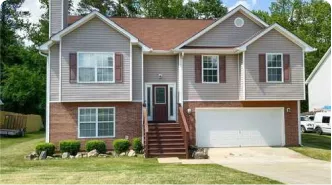
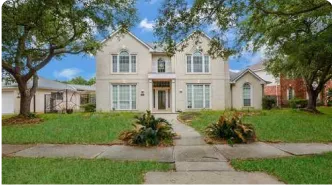
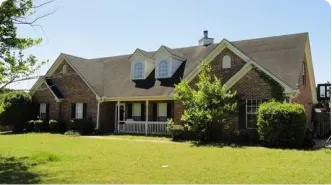
%201.webp)
.webp)


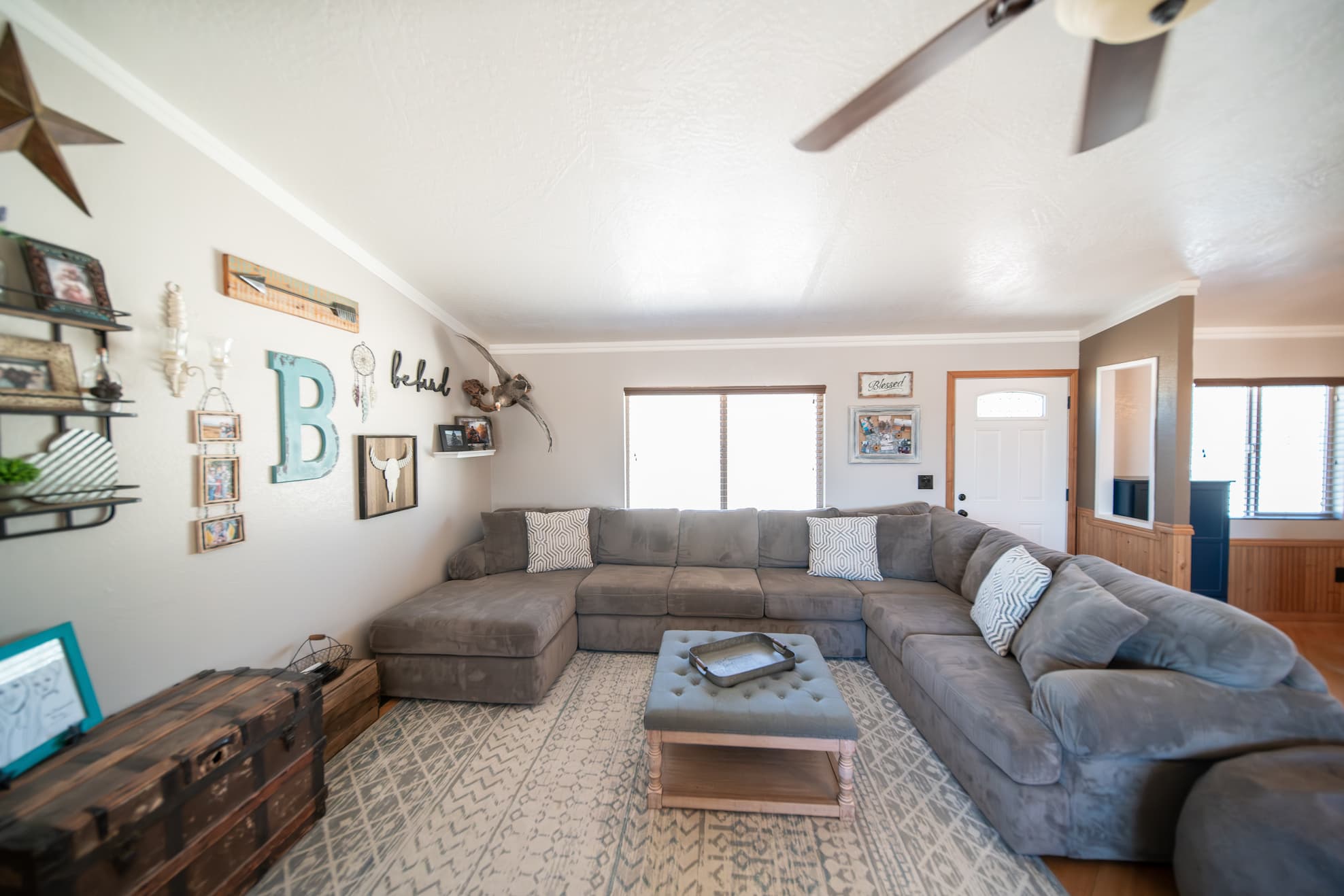
.jpeg)

